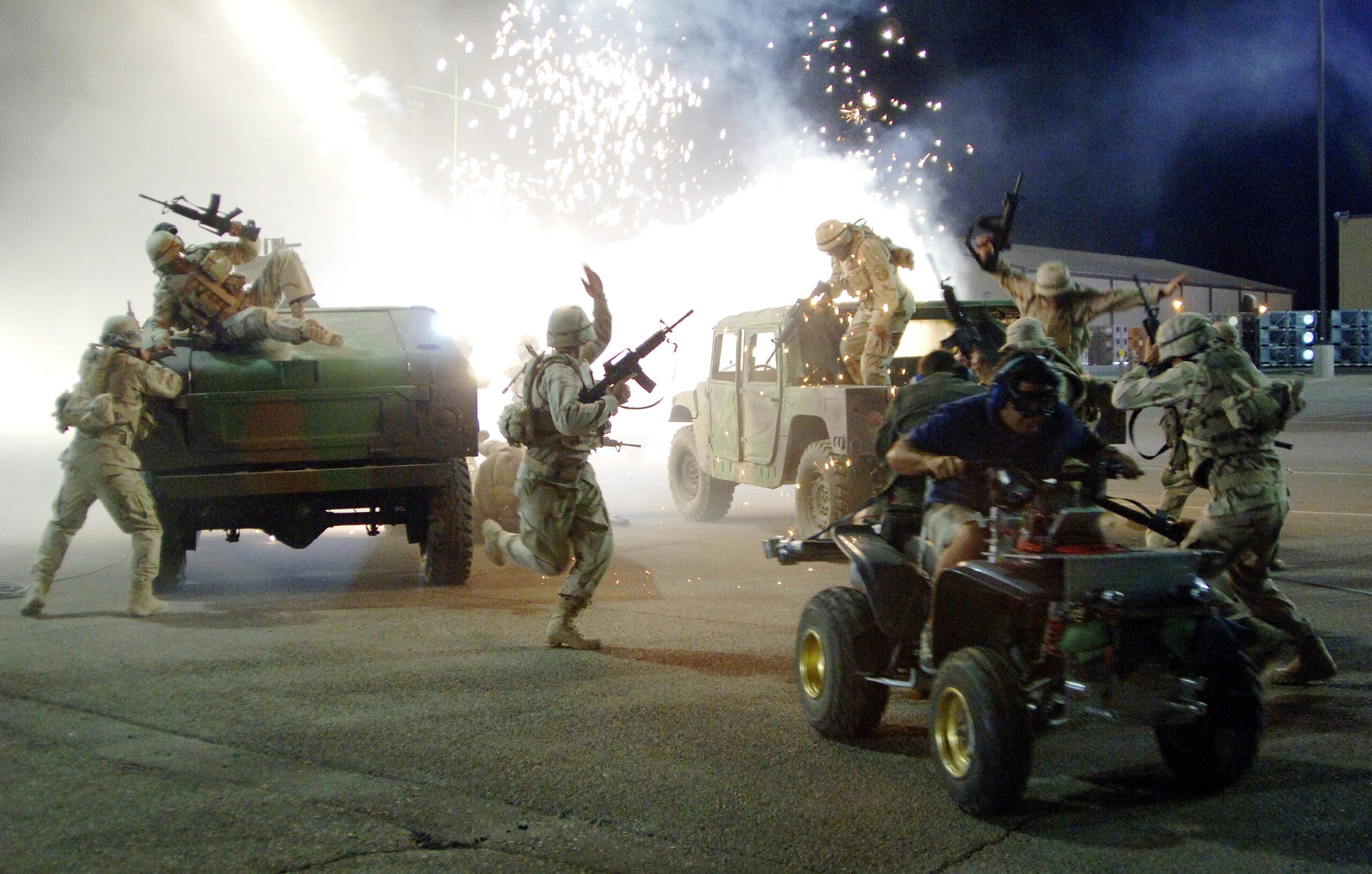Have you ever flipped on a movie only to notice the subtext that the American military is the hero? Or that whomever Washington considers a rival at that moment is the villain? If the answer’s yes, don’t worry: Your mind’s not playing tricks on you.
A new report from Tanner Mirrlees at the Brown University’s Costs of War project reveals the deep and enduring ties between the US Department of Defense (DoD) and the entertainment industry, highlighting how movies and television have long served as tools of military influence.
The paper documents how the Pentagon has shaped over 2,500 war-themed productions, embedding pro-military narratives into popular culture.
The report outlines how the Pentagon offers filmmakers access to expensive military equipment, personnel, and locations in exchange for script approval and alignment with military messaging. This collaboration, formalized through the DoD’s Entertainment Media Office, ensures that US soldiers are portrayed as heroic while minimizing or omitting the civilian toll of war. Mirrlees cites productions like Top Gun, Iron Man, and Captain Marvel as examples where military influence altered storylines to preserve the Pentagon’s image and support recruitment goals.
The paper traces this relationship back to World War I, when the US government used film to rally public support. It intensified during World War II and evolved through the Cold War and post-9/11 era, with the Pentagon actively shaping narratives in films like Black Hawk Down, Zero Dark Thirty, and American Sniper. These portrayals often glorify US military power while dehumanizing perceived enemies and sanitizing the consequences of war.
*
Economic incentives drive this partnership. Studios benefit from reduced production costs, while the military gains a powerful platform for public relations and recruitment. For instance, the Air Force’s collaboration on Captain Marvel led to a spike in female applicants to the Air Force Academy, dubbed the “Captain Marvel effect.”
Critics argue this alliance amounts to taxpayer-funded propaganda. The Pentagon selectively supports productions that align with its goals, effectively censoring dissenting narratives. Films critical of US military actions, such as Platoon or Redacted, are often denied support.
The report warns that this “DoD-Hollywood complex” distorts public understanding of war, promotes American exceptionalism, and normalizes militarism. It calls for greater transparency and public debate about the ethical implications of military-entertainment collaborations.
As the US continues to spend nearly $850 billion annually on defense, the paper urges scrutiny of how entertainment media contributes to public support for endless war. In shaping how Americans see their military, Hollywood is not just telling stories — it’s helping write the script for US foreign policy.














